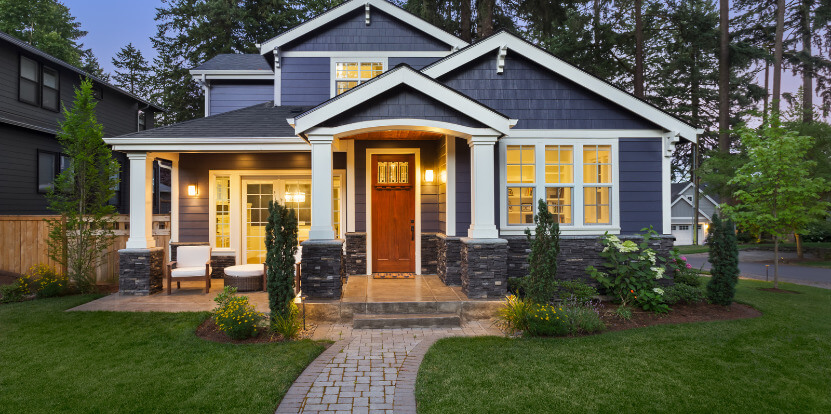After Buying a New Home
Taking Possession
Inspecting Your New Home Before Taking Possession
As your home gets close to completion, usually a few days before you are due to move in, the builder will take you on a tour of the entire house.
There are two reasons for doing this. First, the builder wants you to inspect the home in detail to make sure everything has been done right and according to plan; this is usually also a prerequisite for the builder's new home warranty. Secondly, the builder wants to familiarize you with the systems and products in the home—how to operate, maintain and service them.
Your builder will use an inspection sheet that you will be asked to sign at the end of the tour. Anything that requires attention or correction should be noted on the sheet, even very minor imperfections. That way, there is no debate later about who is responsible. Minor corrections are usually made before you move in; anything else will be dealt with afterwards as quickly as possible.
Getting to know your new home
A new home incorporates the latest systems and products. Knowing how to operate the systems and take care of your home will contribute to years of problem-free performance and enjoyment. It will also avoid invalidating the builder's or product manufacturers' warranties due to improper use. In addition to a personal demonstration, home builders often provide a homeowner's manual with detailed information on the home, including basic maintenance inside and out. Ask about this.

Product manufacturers' warranties
Many of the products and materials used in your new home come with a manufacturer's warranty, as well as maintenance information. Your builder will pass these materials on to you, along with any warranties by subcontractors for products and services that went into the construction of your home.
After You Move In
The First Year in Your New Home
Moving into a new home is a great experience. Both you and your builder have worked hard to arrive at this point, and now it's time to enjoy the rewards. As you get ready to settle into your new surroundings, it's a good idea to review the processes that will help to ensure that your first year in your new home is a truly satisfying experience.
After-sales service
What happens if a problem emerges after you take possession? Make sure you are familiar with your builder's after-sales service process in detail. What's covered by warranty during the first year and what's not? In subsequent years? Who is your key contact? Does the builder schedule regular follow-up calls during the first year when you can discuss any accumulated work, or should you contact the company as the need may arise?
You should also have an idea of the response time you can realistically expect. Outside of the rare emergency requiring immediate attention, a builder may have to arrange service calls around construction schedules as well as the availability of subcontractors. The vast majority of service calls are dealt with professionally, within a reasonable timeframe and to the homeowner's satisfaction. If needed, the third-party warranty program, which backs the builder's warranty, can step in to resolve any dispute and ensure that the required work is done.
Typical first-year changes
A newly-built home typically experiences some drying of materials and settling during the first year, which may result in minor changes. This is completely normal, does not indicate a defect in your home and should not be a cause for concern.
Talk with your builder about any changes that might occur, and how to best deal with them.

